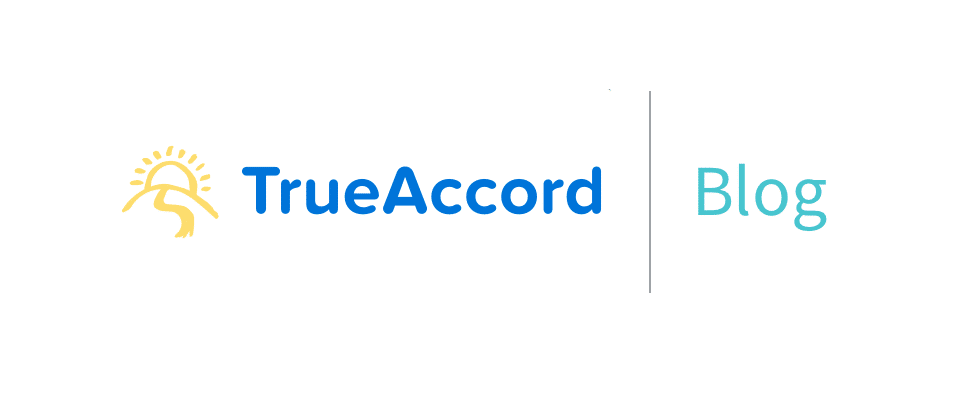
The Consumer Financial Protection Bureau’s Notice of Proposed Rulemaking (NPRM) is set to help shape massive changes to the debt collection industry. In an effort to continue our mission to protect consumers from predatory and aggressive collections experiences, the co-founder of TrueAccord, Ohad Samet, recently drafted a letter to the CFPB’s Director Kathleen Kraninger.
In the midst of major economic uncertainty, we understand that we must be compassionate when many consumers are struggling financially. Offering consumers in debt flexibility by supporting and expanding the industry’s digital infrastructure enables us to extend self-service options to those that need it most and limit their exposure to collections efforts that are intrusive and harassing.
Some states are considering freezing collections efforts, but we continue to believe in consumers’ ability to manage their finances for themselves. Access to online portals and self-service payment plan adjustments can help them manage their overdue accounts at their own pace, even in times of financial instability. A complete suspension of their ability to pay, if and when they can afford it, can make matters worse.
Passing the NPRM into law can help to restructure collections to protect consumers today.
You can read our letter to Director Kraninger below:
Our letter to the Consumer Financial Protection Bureau
Dear Director Kraninger,
I am the CEO of One True Holding Company, a technology company providing business- and consumer-facing solutions in the debt collection space. Our subsidiary TrueAccord Corp. offers machine learning-based, digital- and mobile-first servicing for debt in collections and recoveries. Our subsidiary True Life Solutions offers consumers a SaaS platform that consumers can use to contact collectors and creditors digitally.
We service millions of consumers on a monthly basis, sending more than 18 million emails a month. As a technology startup at the forefront of debt collection efforts, we have both quantitative and qualitative views of the state of the economy and debt collection within it.
Times like these require swift action, and technology allows us to empower consumers while reacting to changing circumstances without having to re-train a large workforce. Since the crisis began, we have been able to seamlessly launch features allowing consumers to modify their payment plans on their own and set up longer and more flexible payment arrangements. We are launching tools for clients to offer automated digital relief programs. Consumers still interact often with the emails we send as they try to stay abreast of their finances and remain informed. 1
Our pandemic response page, offering tools and perspectives about finances in this time, sees more than 1,200 daily visits. Technology offers better service, a sense of empowerment and agency, and keeps our users informed through complicated circumstances. As a consumer-focused company, we carefully track our customer satisfaction (CSAT) scores, and those have remained high (at 68.45% for the month of March). Consumers appreciate our approach, as these reviews also show:
Consumer review from 3/19/20
You were patient. All emails were kind even from the beginning of my debt. You motivated me to repay my debts and monitor my credit. You appreciated me and I felt the extraordinary customer service from the day I first took the loan. I am grateful and even during this pandemic [emphasis added] I felt my loyalty to complete my payment of this loan over any other bill. Thank you again!
Consumer review from 3/18/20
Settled in a manner that facilitated affordable payments on a schedule that fit my life. I wish all collection agencies were this caring and flexable [sic]. Hopefully, I’ll never have another collections account, but if I do, I pray it’s with this agency.
As a single father making minimum wage, finding money to pay bills that aren’t crucial to keeping my kids healthy and happy is a real struggle, and my credit score had taken the hit in the past. I am really, truly grateful this is one acct that gets crossed off my list. Thanks!
I write today to ask the CFPB to accelerate its NPRM and swiftly push the industry to rely predominantly on digital communications for the purpose of debt collection. We need to continue to communicate with consumers through their channel of choice, in a non-intrusive manner, allowing them to easily manage their finances while controlling who they want to interact with. We need to continue to allow them to access their accounts and make adjustments to fit their personal circumstances.
Through this last week consumers have continued to set up customized payment plans on a daily basis, at a rate comparable to pre-tax season behavior. These are consumers acting on their own, responding to our low-frequency digital contact efforts. Finances aren’t one-size-fits-all, and a digitally native collection service supports this variety even in these trying times.
Thank you for your consideration and leadership in these trying times. We are eager to share as much data and qualitative observations as possible to support your policy-making and continue this conversation with a focus on consumer protection, choice, and experience
Citations
1. More than 20% open rate per each individual email broadcast as of 3/21, comparable with and exceeding eCommerce benchmarks

